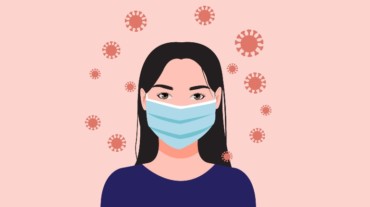
Let’s face it guys: We are in this pandemic for the long haul. With 2020 inching close to an end, we are soon going to finish a year of life with covid-19.
But when it comes to living with covid-19, no one has it bad as the people who get infected. As studies claim that covid-19 symptoms can last for months—and mounting evidence of reinfection—life with the SARS-CoV-2 can be truly brutal.
In fact, two studies suggest that three months after becoming ill, many covid-19 patients still have symptoms. They also confirm that the more severe the initial infection, the higher the odds of persistent problems.
In Spain, doctors checked back with 108 patients, including 44 who had been severely ill. At 12 weeks after diagnosis, 76% still reported after-effects, with 40% reporting three or more coronavirus-related health issues, doctors said in a paper posted on medRxiv ahead of peer review.
The most common complaints were shortness of breath, physical weakness, cough, chest pain, palpitations, and psychological and cognitive disorders.
In a similar study of 233 U.S. covid-19 patients—eight of whom had been severely ill—one in four still had symptoms 90 days after first feeling ill.

Rates were higher for patients who had been sicker: 59.4% at 30 days and 40.6% at 90 days.
“But even for very mild and initially asymptomatic cases, 14.3% have complications that persist for 30 days or longer,” the authors reported on Sunday on medRxiv.
In the U.S. study, the most common persistent symptoms were impaired smell and taste, difficulty concentrating, shortness of breath, memory loss, confusion, headache, heart palpitations, chest pain, pain with deep breaths, dizziness, and rapid heartbeat.
Also, read: Runny nose and diarrhoea are also covid-19 symptoms according to the CDC
Select Topics of your interest and let us customize your feed.
PERSONALISE NOWTwo reports published in the journal Science Immunology suggest that people infected with covid-19 develop antibodies that last for at least three months.
The two studies, together involving nearly 750 patients, both point to immunoglobulin G (IgG) antibodies, which start showing up well after an infection begins, as the longest-lasting.
While the protective effect of covid-19 antibodies is not completely clear, Jen Gommerman of the University of Toronto, co-author of the study, said her team also found levels of so-called neutralizing antibodies, which inactivate the virus and “appeared to be very stable.” The other study, from Harvard Medical School, reported similar findings.
These findings can help create a more efficient vaccine—one that hopefully puts a stop the pandemic and result in at least less severe infections—if nothing else.